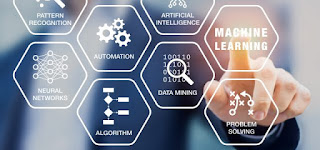Negocios, complejidad y ciencia de datos: Parte II

Hoy en nuestra sección de Colaboraciones Especiales, repite como autor invitado a Edgar Antonio Valdés Porras, experto en innovación tecnológica, que nos presenta la segunda parte de su entrega sobre los negocios digitales desde un enfoque de la complejidad económica y su conjunción con la ciencia de datos. Véase: Negocios, complejidad y ciencia de datos: Parte I Negocios, complejidad y ciencia de datos: Parte II La orquestación de negocios, es un modelo que surge de la interacción entre pares mediante la conexión de quienes ofrecen un producto o servicio con los consumidores. Se distingue de los modelos tradicionales porque lo que ofertan estas compañías no es el producto en sí mismo, sino la interacción. Pensemos por ejemplo en negocios como Uber y Airbnb, que no son propietarios de bienes materiales, sino que proveen una plataforma segura donde los usuarios -tanto vendedores como compradores- interactúan entre ellos. ¿Cómo genera un modelo de negocios de orquestación sus primeros







